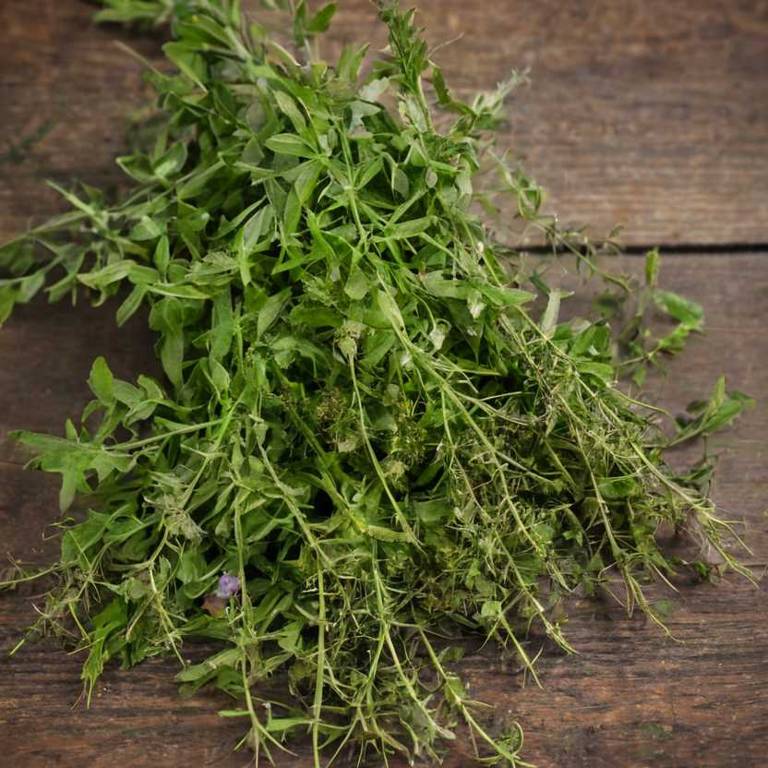European Bugleweed (Lycopus europaeus)
European Bugleweed (Lycopus europaeus) is a member of the Lamiaceae family, native to Europe, Western Asia, and North Africa. Traditionally, its leaves, roots, and stems have been used for infusions, decoctions, and poultices.
This herb is particularly valued for its anti-inflammatory, antispasmodic, and sedative actions, and has a long history of use in european herbal medicine, traditional chinese medicine, and mediterranean herbal traditions.

Quick Facts / Key Information
| Common Name | European Bugleweed |
|---|---|
| Scientific Name | Lycopus europaeus |
| Plant Family | Lamiaceae |
| Genus | Lycopus |
| Species | europaeus |
| Native Range | Europe, Western Asia, North Africa |
| Plant Parts Used | Leaves, Roots, Stems |
| Primary Medicinal Actions | Anti-Inflammatory, Antispasmodic, Sedative |
| Primary Traditional Systems | European Herbal Medicine, Traditional Chinese Medicine, Mediterranean Herbal Traditions |
| Historical Preparation Methods | Infusion, Decoction, Poultice |
Botanical Identity
- Scientific Name
- Lycopus europaeus
- Common Name
- European Bugleweed
- Synonyms / Alternative Names
- European Bugleweed, Blueweed, Garden Germander
- Plant Family
- Lamiaceae
- Genus
- Lycopus
Botanical Description
- Growth Habit
- Perennial herbaceous plant.
- Height
- It typically grows to a height of 30 to 80 centimeters.
- Leaves
- Opposite, ovate leaves with smooth margins, upper surface dark green, lower surface lighter green, featuring prominent stomatal bands along the midrib.
- Flowers
- Flowers are actinomorphic, typically blue to violet in color, arranged in dense spike-like clusters, with four to five ovate petals and a prominent five-lobed calyx.
- Stems
- Erect, branched, herbaceous stems with opposite decussate leaves, pubescent surfaces, and nodes bearing adventitious roots.
Traditional Uses / Historical Use
Traditional Systems
- European Herbal Medicine
Historical Preparation Methods
- Infusion
- Decoction
- Poultice
- Tincture
Medicinal Actions
- Anti-inflammatory
- In herbal texts, considered a moderate anti-inflammatory, in tissue-soothing contexts.
- Antispasmodic
- Historically regarded as a mild antispasmodic, in spasm-related situations.
- Sedative
- Commonly referenced as a cooling sedative, in nervous system–related contexts.
- Tonic
- Traditionally described as a warming tonic, in general wellness contexts.
Active Compounds
- Flavonoid
- Naturally occurring polyphenols that contribute to pigmentation and structural chemistry.
- Phenolic Acid
- Organic acids commonly occurring as part of plant secondary metabolism.
- Glycoside
- Naturally occurring metabolites distributed across many plant species.
- Coumarin
- Naturally occurring lactone compounds distributed across various plant tissues.
Modern Research Overview
This section is reserved for future summaries of scientific research related to this plant. As additional verified sources are reviewed, relevant study information will be added here.
Safety & Contraindications
- General Precautions
- The use of this herb may warrant general caution in certain situations.
- Contraindications
- The use of this herb has been associated with reported contraindications in some situations.
- Allergies
- Sensitivity or allergy-related effects have not been clearly established.
- Drug Interactions
- Interactions between this herb and prescription medications have been noted in traditional use and literature.
- Toxicity
- The use of this herb has been linked to reported toxic effects.
- Pregnancy & Breastfeeding
- There is insufficient evidence to determine the safety of this herb during pregnancy or breastfeeding.
Preparation & Usage Methods
- Infusion
- Water is poured over plant material and allowed to steep before straining.
- Decoction
- Plant parts are gently boiled in water to release soluble constituents.
- Poultice
- Poultices involve external application of prepared plant matter.
- Tincture
- A preparation involving soaking plant parts in alcohol for extended extraction.
- Extract
- A preparation involving the separation of plant constituents without alcohol.
Growing, Harvesting & Storage
Growing / Cultivation
- Soil
- Prefers loamy soil with moderately well-drained conditions. Typically grows best in organically rich soils.
- Sunlight
- Thrives in partial shade. Tolerates full sun to partial shade.
- Watering
- Prefers consistently moist soils. Tolerates periodic dry conditions.
Medical Disclaimer
The information provided on this page is for educational and informational purposes only. It is not intended to diagnose, treat, cure, or prevent any medical condition. Always consult a qualified healthcare professional before using any herb for medicinal purposes.